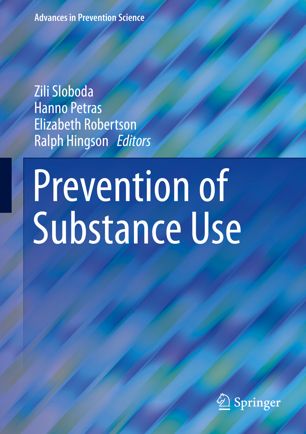

Most ebook files are in PDF format, so you can easily read them using various software such as Foxit Reader or directly on the Google Chrome browser.
Some ebook files are released by publishers in other formats such as .awz, .mobi, .epub, .fb2, etc. You may need to install specific software to read these formats on mobile/PC, such as Calibre.
Please read the tutorial at this link: https://ebookbell.com/faq
We offer FREE conversion to the popular formats you request; however, this may take some time. Therefore, right after payment, please email us, and we will try to provide the service as quickly as possible.
For some exceptional file formats or broken links (if any), please refrain from opening any disputes. Instead, email us first, and we will try to assist within a maximum of 6 hours.
EbookBell Team

4.0
86 reviewsThis volume provides a serious examination of substance use prevention research and practice as components of the continuum from health promotion through to prevention and health care in sub-groups and in the general population. Extensive background chapters provide portals into the evolution of the field and the cutting edge research being conducted on the etiology, epidemiology, and genetics of substance use and abuse. The global nature and health burden of substance use and abuse incorporates assessments of the serious problems related to the prevention of legal substance use (i.e., alcohol and tobacco) and how lessons learned in those arenas may apply to the prevention of illicit substance use. Research and practice chapters detail a range of effective evidence-based programs, policies and practices and emerging prevention interventions from the literatures on the family and school contexts in addition to innovations involving mindfulness and the social media. Continued advancements in substance use prevention research, practice, training, and policy are projected.
Included among topics addressed are:
The array of research accomplishments and real-world methods presented in Prevention of Substance Use merits the attention of a variety of researchers and practitioners, including public health professionals, health psychologists, and epidemiologists.